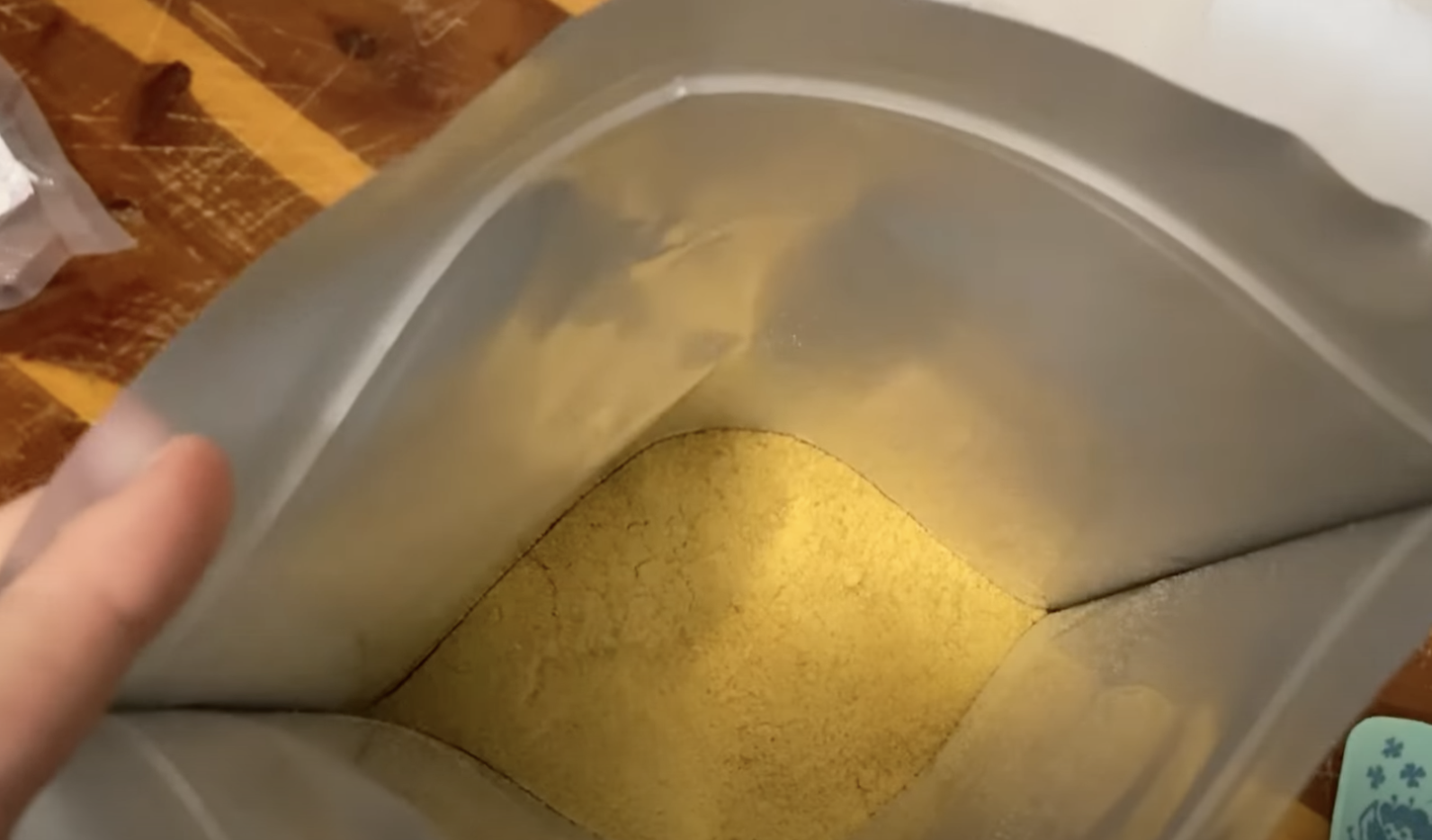Morgan Rogue 11.04.22
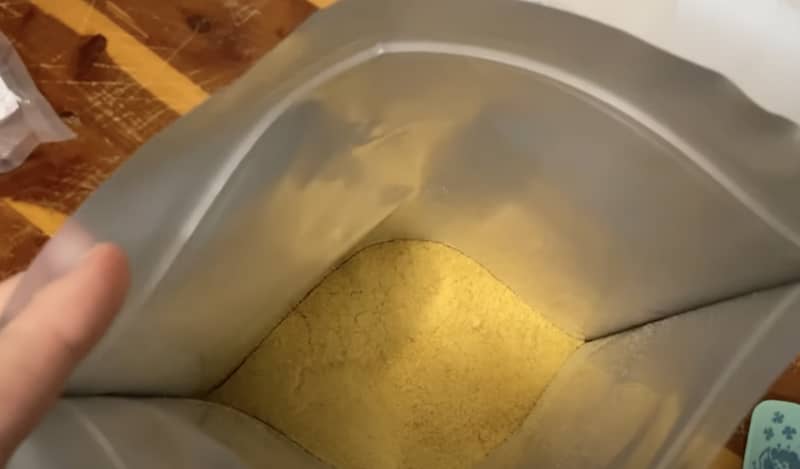
Making your own dried powdered eggs at home is a lot easier than people think!
If you happen to have a freeze dryer, you’ll be able to make and store dry eggs for many, many years.
If you’re like me and can’t afford a freeze dryer (yet), I do what I can with my dehydrator.
Dehydrating eggs is a great way to preserve eggs for longer periods of time.
Will dehydrated eggs last as long as freeze dried eggs?
No. But that’s ok! It can still last between 5-10 years if you package them in mylar with an oxygen absorber.
Preserve your own eggs with your dehydrator at home!
Here’s how to dehydrate eggs:
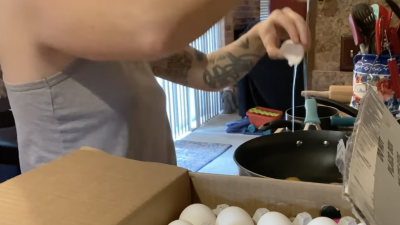
First, grab your eggs and cook them! I do not recommend dehydrating raw eggs. Cook them first. Don’t cook in butter or oil or anything else. Just plain scrambled eggs.
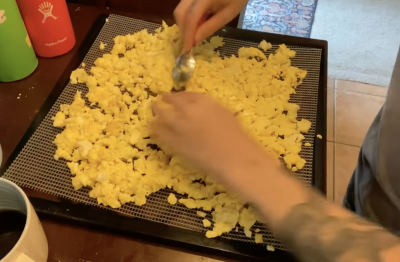
Next, add them to your dehydrating tray in the smallest pieces possible. The smaller the pieces, the quicker the dehydrating process.
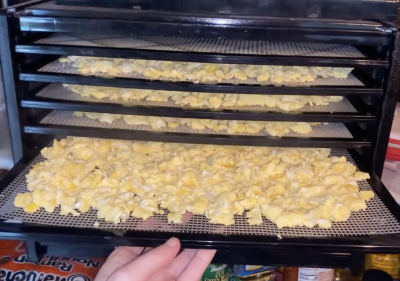
Finally, place all of the trays in the dehydrator. If your dehydrator has a temperature setting, set it to 145 degrees F. It’ll take a while to completely dry. Usually 8-10. When they’re done, they will be crispy and break apart. If some pieces are having a difficult time dehydrating, break them up and keep dehydrating. You can’t over-dehydrate eggs. We want to make sure they’re fully dried.
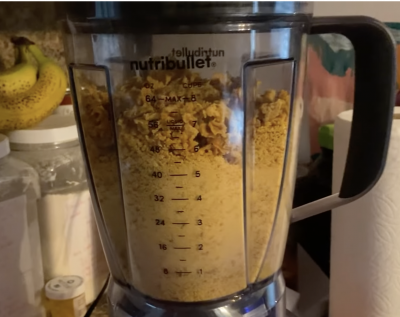
Once completely dried, place them in a blender or food processor or some other pummeling machines, or even a mortar and pestle if that’s all you have. Grind the dried eggs up into a powder.

Place the powdered eggs into a mylar bag with oxygen absorber and heat seal.
All done!
How to rehydrate dehydrated eggs:
Mix 2 tbsp of dehydrated eggs to 2 tbsp of warm/hot water. Mix it up really good. Let sit for about 5 minutes. If it doesn’t reconstitute all the way, add in a tiny bit more water (1 tsp at a time, or even less) and mix again and let sit another few minutes to thicken.
How to use dehydrated eggs:
Dehydrated eggs can be rehydrated and fried up like scrambled eggs. Or they can be rehydrated and added to baked goods in place of fresh eggs. They can also be used in any cooking recipes that calls for fresh eggs.
I recommend rehydrating the eggs first before adding to any recipe so you can make sure you’re not draining the recipe of any needed moisture and you’re adding the right amount of eggs.
Enjoy!
